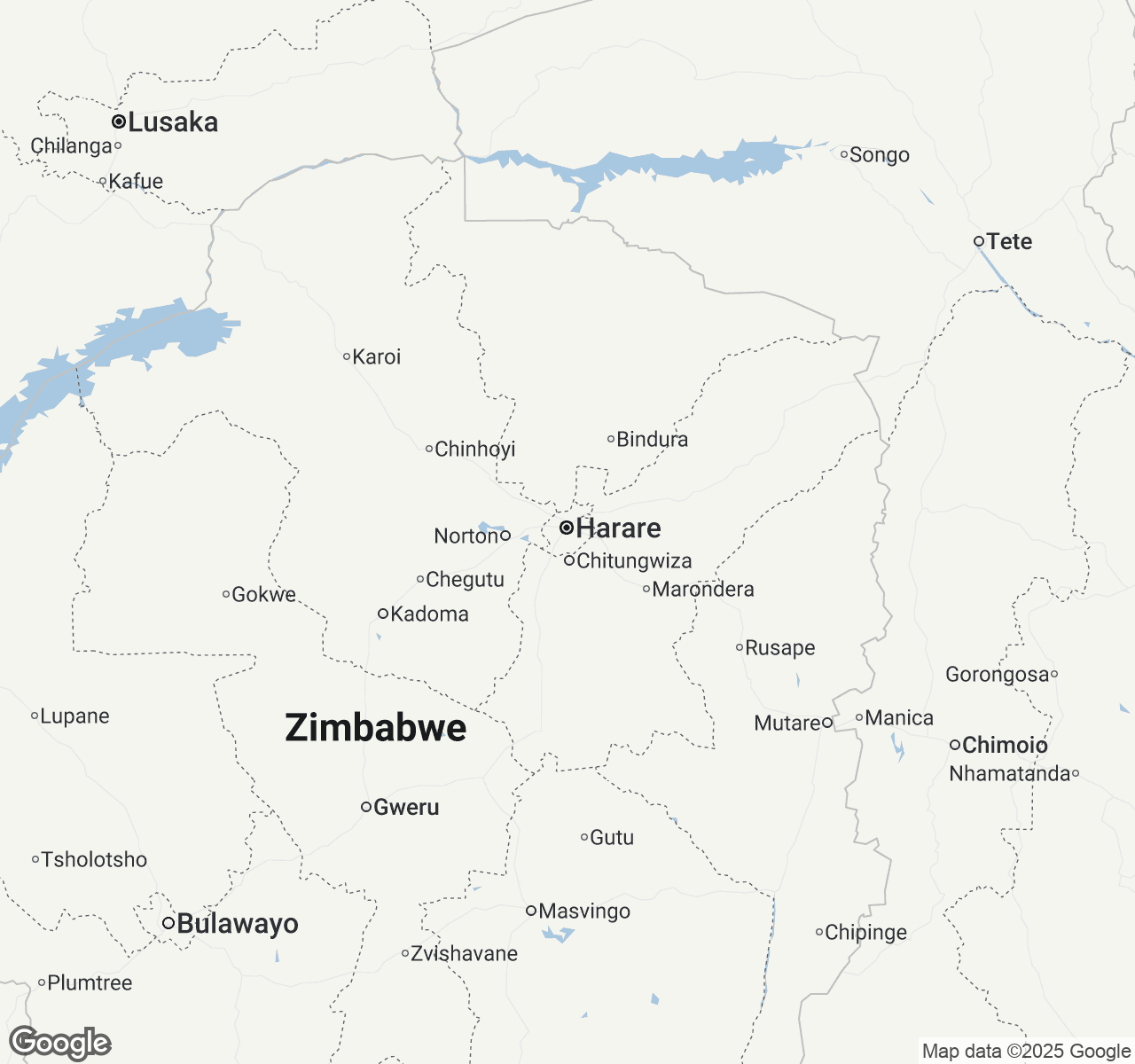
Things to Do in Harare
Discover the best of Harare
Plan Your Trip
Essential guides for timing and budgeting
Top Things to Do in Harare
Discover the best activities and experiences. Book now with our trusted partners and enjoy hassle-free adventures.
Explore Harare
Avondale Flea Market
City
Borrowdale Village
City
Chapungu Sculpture Park
City
Chitungwiza
City
Domboshava Rock Paintings
City
Doon Estate
City
Eastgate Centre
City
Epworth Balancing Rocks
City
Greenwood Park
City
Harare Gardens
City
Harare International Conference Centre
City
Lake Chivero Recreational Park
City
Mbare Musika Market
City
Mukuvisi Woodlands
City
National Gallery Of Zimbabwe
City
National Heroes Acre
City
Shona Sculpture Gallery
City
Tobacco Auction Floors
City
Warren Hills Golf Club
City
Zimbabwe Museum Of Human Sciences
City
Your Guide to Harare
About Harare
Where jacaranda blossoms paint purple canopies over wide boulevards and the warmth of African hospitality flows as freely as the stories shared beneath ancient msasa trees, Harare emerges as Zimbabwe's beating heart. This garden city pulses with a rhythm all its own—where the aroma of traditional sadza mingles with contemporary café culture, and where vibrant markets burst with colorful fabrics, intricate stone sculptures, and the melodious cadence of Shona and Ndebele voices. In Harare, every sunrise brings the gentle hum of a city awakening to possibilities, from the artistic treasures hidden in Mbare's bustling streets to the serene moments found in the National Botanic Gardens. Here, the spirit of ubuntu—the interconnectedness of humanity—isn't just philosophy but lived experience, where strangers become friends over shared meals and sunset conversations that stretch into star-filled nights. This is a place where resilience has been transformed into grace, where cultural heritage dances alongside modern aspirations, creating an urban tapestry that captures both the soul of Africa and the dreams of tomorrow.
Travel Tips
Transportation: Use reputable taxi services like Vaya or Hwindi rather than public transport for safety. Negotiate fares beforehand or insist on metered rides. For longer distances, consider organized tours or rental cars with local drivers who know current road conditions.
Money: Carry US dollars in small denominations ($1, $5, $10 bills) as Zimbabwe primarily uses foreign currency. Credit cards work in upscale hotels and restaurants, but cash is essential for markets, tips, and local transport.
Cultural Respect: Greet elders first and use both hands when receiving gifts or business cards. Avoid photographing people without permission, especially in markets. Dress modestly when visiting rural areas or religious sites, covering shoulders and knees.
Food Safety: Stick to bottled water and avoid ice in drinks. Try local specialties like sadza, nyama, and matemba at established restaurants. Street food can be safe if freshly prepared and hot—look for busy stalls with high turnover.
When to Visit
Harare enjoys a subtropical highland climate with distinct wet and dry seasons. The ideal time to visit is during the dry season (May-October) when temperatures range from 15-25°C (59-77°F), humidity is low, and rainfall minimal. May and June offer perfect weather with sunny days and cool nights, while July-August can be chilly (10-23°C/50-73°F) requiring warm clothing. September-October see temperatures rising to 25-30°C (77-86°F) but remain comfortable with low humidity. The wet season (November-April) brings higher temperatures (20-30°C/68-86°F), afternoon thunderstorms, and 600-900mm annual rainfall, mostly between December-February. While landscape turns lush and green, some rural roads become impassable. Peak season pricing (May-October) sees accommodation rates 30-40% higher than wet season rates. Key festivals include the Harare International Festival of the Arts (HIFA) in May, featuring world-class performances, and the Zimbabwe International Trade Fair in August. Adventure travelers might prefer the wet season for dramatic landscapes and 25% lower costs, while first-time visitors should stick to the dry months for optimal accessibility and weather conditions.

Harare location map